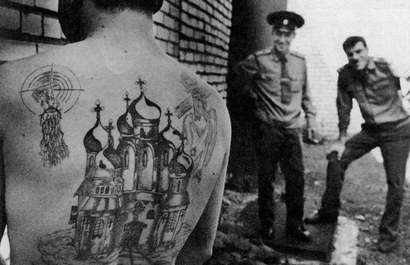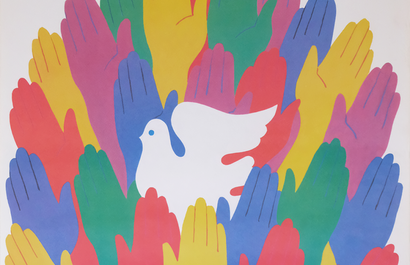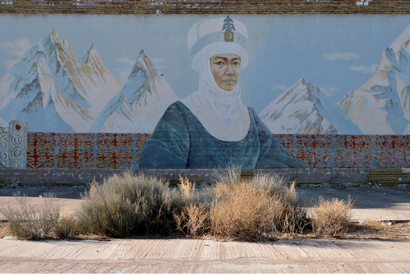Behind the Propaganda Poster: Political Games at the Soviet Olympic Games
The 1980 Moscow Olympics were a chance for the Soviet Union to outshine their Cold War rival. Just a few months earlier, the U.S had hosted the Winter Olympics. The Soviet Union ice hockey team had won gold at five of the last six Winter Games, and were heavily favoured to win again. Instead the U.S beat them in a stunning 4-3 upset. The USSR was humiliated. The stage was set for a rematch.
The Policy Behind the Propaganda
Moscow was beautified in preparation for the Games. Streets were repaved, buildings repainted and stores were stocked with international newspapers and goods never seen before in the USSR. A major international poster design competition was held to promote the Games. Artists from 45 countries submitted more than 5,000 designs. Propaganda posters like the one above depicted proud Soviet athletes holding a banner with the words “Under the banner of Soviet Sports”. The winners had their designs printed and distributed by the Soviet publishing house Plakat, which was responsible for creating many of the propaganda posters at the time.
The Games were as much an ideological contest as a beauty pageant. Tensions were rising between the two superpowers. A few months earlier, the Soviet Union had invaded Afghanistan to support the failing Communist government in Kabul. But the West wasn’t having any of it. U.S President Jimmy Carter began pushing for the United States team to boycott the games. His official announcement came in the form of an ultimatum on Meet the Press. Carter demanded that “the Soviets withdraw their troops within a month from Afghanistan,” or he would insist that the Games “be moved from Moscow to an alternative site, or multiple sites, or postponed or cancelled.” The Soviets didn’t back down. The U.S wouldn’t be making an appearance at the Games.

Who Won Gold?
The games went ahead anyway. The Soviets played the role of an aggrieved party before a somewhat sympathetic international audience. The world was split in a very public arena. 64 countries, including Communist China, joined the United States in boycotting the Moscow Games. It was the largest Olympic boycott in history. Almost half of the countries who boycotted took part in an alternative competition in the U.S. But the results weren’t recognised by the Olympic Committee.
The UK, France, Italy and the Netherlands were among a number of Western countries that did not observe the boycott. Many went but protested at the games by refusing to attend the opening ceremony or sent their athletes under the neutral Olympic flag. The absence of the boycotting countries was noticed. The level of competition was significantly lower than previous years. Most events had disappointing winning times. The Soviet and East German team won 127 out of 203 available gold medals, in the most lopsided medal count since the U.S. domination of the 1904 Games. In an act of retaliation, The USSR boycotted the following 1984 Olympics which took place in Los Angeles.
The real winner was art. Some of the most striking Soviet propaganda posters ever produced stem from that poster design competition. We’re lucky to have a few in our collection. Shop our vintage Olympic posters below or explore the collection here.







